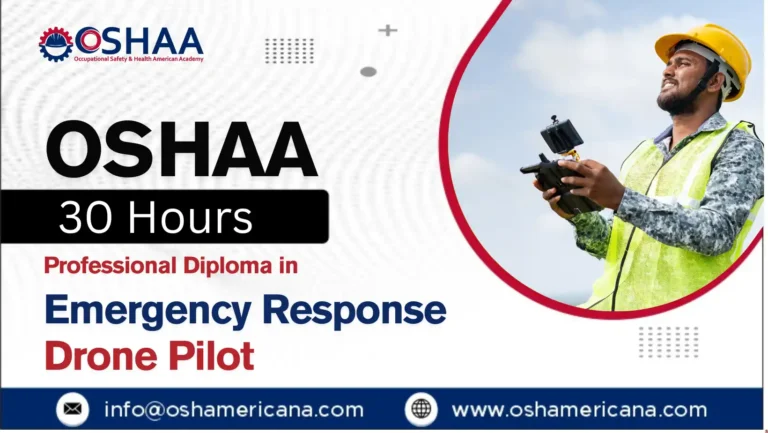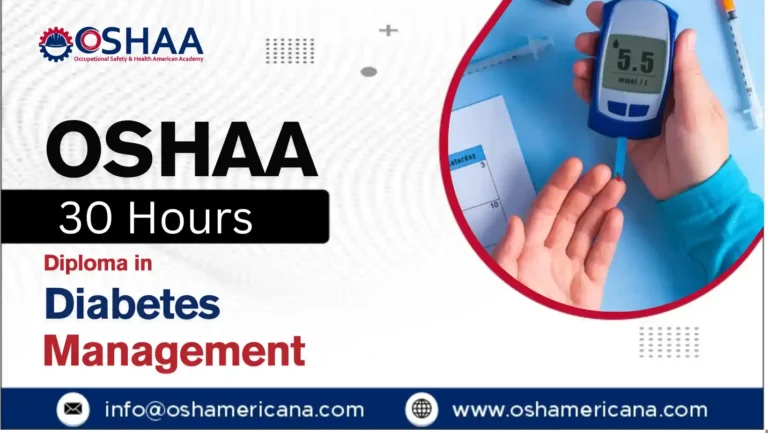Mental health challenges affect millions of individuals across the UK, with suicide, violent behaviour, and substance abuse being some of the most complex and concerning issues. Professionals working in healthcare, social services, and related fields need to be equipped with the knowledge and skills necessary to manage these sensitive situations effectively. The OSHAA 30-Hours Diploma in Mental Health Studies, focusing on suicide, violent behavior, and substance abuse, provides comprehensive training for professionals to navigate these critical areas.
This diploma course offers a deep dive into the various aspects of mental health, focusing specifically on the complex issues of suicide, violent behaviour, and substance abuse. Participants will gain a thorough understanding of these issues, including their causes, risk factors, and effective strategies for support and intervention.
The OSHAA 30-Hours Diploma in Mental Health Studies – Suicide, Violent Behaviour, and Substance Abuse is an essential course for anyone working with individuals at risk of suicide, violent behaviour, or struggling with substance abuse. It equips professionals with the skills, knowledge, and ethical understanding to support individuals experiencing these challenges, ensuring that they receive the care and intervention needed to improve their mental well-being.
OSHAA 30-Hours Diploma in Mental Health Studies – Suicide, Violent Behavior and Substance Abuse
Study Units
Learning Outcomes
Introduction to Mental Health and Its Impact (3 Hours)
- Understand the basic concepts of mental health and illness.
- Identify the key factors affecting mental health at the individual, social, and environmental levels.
- Recognise the significance of mental health on overall well-being and quality of life.
- Develop an awareness of the stigma surrounding mental health and strategies to reduce it.
Understanding Suicide: Causes, Risk Factors, and Prevention (4 Hours)
- Recognise the major causes and risk factors associated with suicide.
- Learn the warning signs and behavioural indicators that may suggest a person is at risk of suicide.
- Understand the strategies and approaches to suicide prevention.
- Develop knowledge of crisis intervention techniques to support individuals at risk.
Identifying and Managing Violent Behaviour (4 Hours)
- Understand the underlying causes and triggers of violent behaviour in individuals.
- Recognise different types of violent behaviour and how they manifest in various settings.
- Learn effective de-escalation techniques and strategies for managing violent situations.
- Develop the skills necessary to respond to violent behaviour in a safe and supportive manner.
Substance Abuse: Causes, Effects, and Intervention (4 Hours)
- Identify the various types of substance abuse and addiction.
- Understand the psychological, physiological, and social impacts of substance abuse.
- Learn about the causes and contributing factors to substance misuse and addiction.
- Explore intervention strategies and support models for individuals struggling with substance abuse.
Psychological Theories of Suicide and Violent Behaviour (4 Hours)
- Gain an understanding of the psychological theories that explain suicide and violent behaviour.
- Explore the relationship between mental illness and violent behaviour.
- Develop knowledge of different theoretical approaches to understanding and treating these behaviours.
- Apply psychological theories to practical cases of suicide and violence in mental health settings.
Crisis Intervention and Suicide Prevention Strategies (4 Hours)
- Learn the principles of crisis intervention and how to apply them effectively.
- Develop practical skills for preventing suicide in individuals at risk.
- Understand the role of mental health professionals in suicide prevention and intervention.
- Learn to assess suicidal intent and take appropriate actions to support the individual in crisis.
Substance Abuse Recovery and Support Models (4 Hours)
- Understand the different stages of substance abuse recovery.
- Gain knowledge of support models, including counselling, therapy, and rehabilitation.
- Learn about community resources and support systems available to individuals in recovery.
- Develop strategies for supporting individuals through the recovery process and preventing relapse.
Legal, Ethical, and Confidentiality Issues in Mental Health (3 Hours)
- Understand the key legal frameworks and policies relevant to mental health care.
- Learn about the ethical considerations when working with individuals experiencing mental health crises.
- Explore confidentiality laws and the importance of maintaining privacy in mental health care.
- Develop an understanding of consent and how it applies to mental health treatment and interventions.
- Enhanced Understanding of Mental Health Issues
This course provides a comprehensive understanding of mental health challenges, specifically focusing on suicide, violent behaviour, and substance abuse. It equips participants with the knowledge to better support individuals experiencing these complex issues. - Practical Crisis Intervention Skills
Participants will learn effective crisis intervention techniques, including how to respond to suicidal behaviour and violent incidents. These practical skills are crucial for professionals working in high-risk environments, allowing them to act swiftly and safely in critical situations. - Expertise in Suicide Prevention
The course delves into the causes, risk factors, and prevention strategies for suicide, ensuring that participants are prepared to identify warning signs early and intervene effectively to prevent suicide, potentially saving lives. - Understanding Substance Abuse and Recovery Models
With a focus on substance abuse, the course offers valuable insights into the causes, effects, and recovery processes associated with addiction. Participants will gain the skills needed to support individuals struggling with substance misuse and guide them through the recovery process. - Knowledge of Violent Behaviour Management
Learn to identify and manage violent behaviour, including techniques to de-escalate situations effectively. This knowledge is essential for professionals working in mental health, social care, healthcare, or crisis management roles. - Increased Career Opportunities
Completing this diploma enhances your credentials and expands your career opportunities within the mental health and healthcare sectors. It is ideal for professionals seeking to specialise in crisis management, suicide prevention, or addiction recovery. - Ethical and Legal Awareness
The course provides a solid understanding of the legal and ethical considerations when working with individuals experiencing mental health issues. It helps professionals navigate the complexities of confidentiality, consent, and ethical practice, ensuring they operate within the law. - Holistic Approach to Mental Health
This course takes a holistic approach, addressing both the psychological and social factors contributing to suicide, violent behaviour, and substance abuse. This broadens participants’ perspectives on mental health care, allowing them to adopt a more comprehensive approach when supporting individuals in need. - Improved Communication and Support Skills
With a focus on communication strategies, participants will enhance their ability to effectively engage with individuals experiencing mental health crises. The course teaches how to communicate with empathy and understanding, which is key in providing supportive care. - Practical Application of Knowledge
Through case studies and real-world examples, participants will gain a practical understanding of how to apply the theoretical knowledge learned. This enables them to confidently address complex mental health issues in their professional practice.
The OSHAA 30-Hours Diploma in Mental Health Studies – Suicide, Violent Behaviour, and Substance Abuse is designed for a wide range of professionals and individuals who work with people facing mental health challenges. This course is ideal for those seeking to deepen their understanding and improve their skills in managing complex mental health issues.
It is suitable for:
- Mental Health Professionals: Psychologists, psychiatrists, and counsellors who wish to enhance their expertise in suicide prevention, managing violent behaviour, and substance abuse treatment.
- Healthcare Workers: Nurses, doctors, and therapists who work with patients dealing with mental health crises, substance abuse, or violent tendencies.
- Social Workers: Social workers involved in supporting individuals with mental health issues, addiction problems, or those at risk of suicide or violent behaviour.
- Support Workers and Care Providers: Those in direct care roles who assist individuals with mental health conditions, offering day-to-day support in a residential or community setting.
- Crisis Intervention Professionals: Individuals working in emergency services or crisis management roles who require skills to effectively manage suicide threats, violent behaviour, or substance misuse.
- Substance Abuse Counselors: Professionals specialising in addiction treatment who want to expand their knowledge of substance abuse recovery models and effective intervention strategies.
- Managers and Supervisors in Mental Health Services: Leaders in care settings looking to enhance their team’s capability to handle critical mental health issues, including suicide and violent behaviour.
- Anyone Interested in Mental Health: Individuals who are passionate about mental health awareness and want to gain the qualifications to work in mental health-related fields.
This course is for anyone seeking to develop the skills and knowledge needed to manage and support individuals experiencing some of the most challenging aspects of mental health, including suicidal tendencies, violent behavior, and substance abuse. It is ideal for professionals looking to specialize in crisis intervention, mental health support, and addiction recovery.







